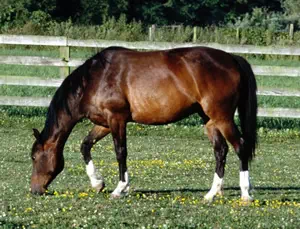|
 INDIANA INDIANA
Carcass Disposal State Regulations
General
Depending on circumstances, large animal carcass disposal may be regulated by a state's solid waste, medical waste, agriculture, or emergency management regulations. If your state does not provide specific guidance or regulations relating to large animal carcass disposal, check with your local health department, or city/county laws and ordinances.
In addition, during emergency situations and disasters (e.g., blizzards, floods, hurricanes, mass die-offs, etc.), consult with your local emergency officials, your state emergency planning agency, or the state veterinarian, to determine approved methods of carcass disposal.
Applicable Agencies and Regulations for Illinois
Indiana State Board of Animal Health (BOAH)
Address: 805 Beachway Drive, Ste. 50, Indianapolis, IN 46224
Contact Information: http://www.in.gov/boah/2342.htm
Rules and Regulations: Dead Animal Disposal (Technical Bulletin LG-1.97). State law requires an animal owner to dispose properly of all remains with 24 hours of learning of an animal's death by one of 4 methods approved by the Indiana State Board of Animal Health (BOAH). Disposal options addressed, include
- Rendering: Carcasses may be rendered to an approved disposal plant.
- Landfilling: Producers may discard dead animals at a local landfill but are advised to contact the landfill manager for permission before discarding of any animal matter. In addition, some local communities and counties may have additional ordinances that regulate further what can be done. Local authorities should be consulted.
- Burial: The entire carcass must be buried at least 4 feet below the surface and under 4 feet of earth. Avoid burying near waterways, ponds and places with a high water table.
- Burning: Thorough and complete incineration of the carcass, including all bones is necessary, which is not likely to result from a simple burn pile in the backyard. Producers choosing to install an on-farm incinerator should contact Indiana Department of Environmental Management's Air Division to determine if a permit is required.
- Composting: Composting must be managed in a way that meets state rules 345 IAC 7-7-3.5 Composting (see below). More information about composting, including design and operation advice, is available through university extension services and by contacting any local USDA-Natural Resources Conservation Service office.
- Other Methods: Feeding to exotic animals, although legal for most species (not swine), is closely regulated by BOAH. Livestock producers should ask if the exotic owner holds a state (not federal) exotic feeding permit before allowing a pick up of dead stock.
Rules and Regulations: 345 IAC 7-7-3.5 Composting. Describes rules for composting dead animals.
More Information
The Cornell Waste Management Institute (CWMI) maintains a database of carcass disposal state regulations promulgated by state environmental, agricultural and other agencies. There may be additional information on this site, not found on VetCA, that can be helpful to veterinarians, ranchers and farmers. Click here to access the CWMI information for Indiana.

Choose another state
|

